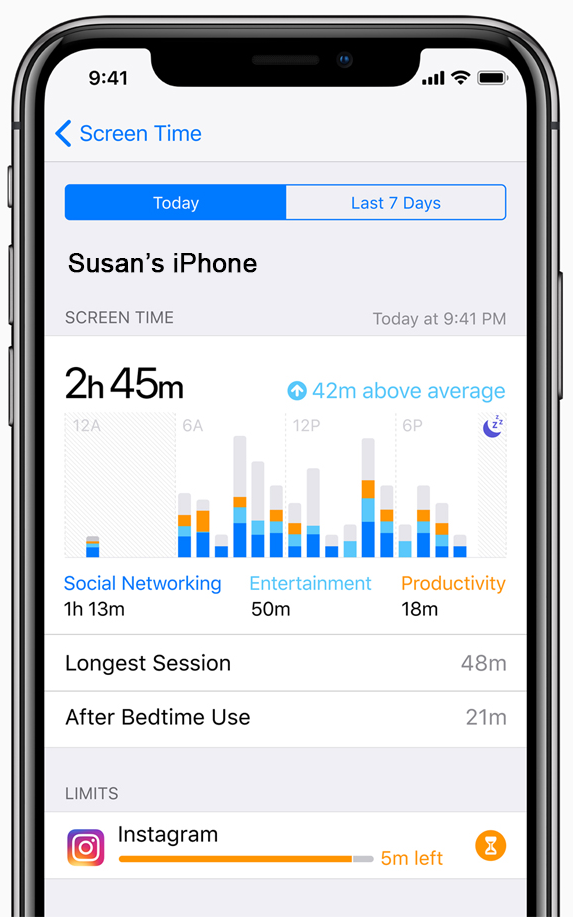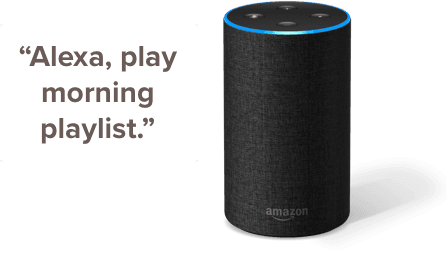I don’t think I’m suffering from paranoia, but I am resolutely convinced that someone from Apple is spying on me. What other explanation can there be to account for the weekly messages that appear on both my i devices (phone and pad) summarizing my screen time?
Not only do these messages mathematically tally my screen time with numbers and percentages, but they also inform me if my usage was less or more than the previous week.
The point of sharing this knowledge totally escapes me. Why do I need to know this? And what is its significance? If my screen time is fewer minutes than the week before, is that a bad thing or a good thing? Does it mean I actually had something more productive on my agenda than logging into my Facebook account five times a day or ordering more dog food on Amazon? What if my screen time numbers continue on a downward trend? Will I lose my “i” privileges? Will the Apple police come to my door and confiscate my phone? Or can I sign an affidavit promising that I will spend more time on Google, or streaming additional seasons of “Jack Irish?”
And if the following week my screen time has increased, do I get to keep my place in line to acquire the next new and improved Apple product?
So, Apple, listen! If you’re going to continue to send me assessments of my screen time performance, would you consider providing more in-depth details regarding the derivation of your scoring system? I think I use my iPhone intelligently, but if you feel I could be doing better, you need to be more specific.
It needn’t be complicated. With all your brain power, I’m sure you could come up with something fairly simple. Maybe like the report card we used to get in elementary school. Oh, wait. You’re probably all Gen Ys or Gen Zs, or at the most, millennials. You have no idea what I’m talking about. Let me explain.
Report cards were issued several times during the school year and their approach was one of the first exposures of grade-schoolers to tension and anxiety. These emotions, sad to say, would follow us throughout life, prompted by causative factors similar to your weekly screen time reminders. But I digress.
Simply stated, the various subjects covered in class were listed on the card, e.g., Reading, Spelling, Arithmetic, Penmanship, Geography, etc. In addition, were listings of character traits, such as Citizenship, Courtesy, Works and Plays Well with Others. The rating system was basic: E=Excellent; G=Good; NI=Needs Improvement. (I admit to my share of NIs in the latter category. Being the older sibling, I did have a tendency towards bossiness.)
We would dutifully carry home these report cards in our school bags. Depending upon the overall amount of Es, Gs, and NIs, we cautiously asked one of our parents (the more lenient one) to sign the card, which we would dutifully carry back to school and hand it to the teacher.
Even I, with my limited technological know-how, am able to see how this simple system could be easily adapted to the current purpose. For example, in place of Reading, Spelling, and the like, you could list Face Book, You Tube, Twitter, Google, Amazon. You know better than I that the possibilities are boundless.
If, for example, my Face Book time increased from the prior week, you can score me with an E. If it stayed the same, then I simply rate a G. And If you caught me picking my nose on a Zoom meet-up, you are within your rights to slap me with an NI! You needn’t bother about requiring a parental signature.
So, Apple, if you are going to continue to send me reports of my screen time in an attempt to modify my behavior, I’m sure you can appreciate the value of a more in-depth analysis.
And, if you adapt my model, you don’t even have to acknowledge me or give me any of the credit. In fact, I’d appreciate it if you didn’t mention me at all!









Susan, do you realize that in this cyber world of ours, governed by the Software as a Service corporate “authorities”, YOU are the product.
To track you and your usage is to sell your viewing, your two eyes and your preferences. They don’t mean to grade you, or even upgrade you by modifying your behavior, they just want to “give” you more of what you seek, and sell that profile to others who will offer you more of what you seek. They may provide you all those usage statistics under the guise of tracking your data usage plan. You may have an unlimited plan and so think, “What do I need all these figures for?” But many folks pay per data usage and this is a way to keep track of one’s data expenses. It’s really all about how much money your digital presence can bring.
“Just because you’re paranoid doesn’t mean they’re not out to get you.” They are definitely out to get you…and me.
Love your work and your humor, keep it coming.
Thank you for the insight. I figured there was a solid reason why they did what they did beyond the purpose of giving me something to write about!